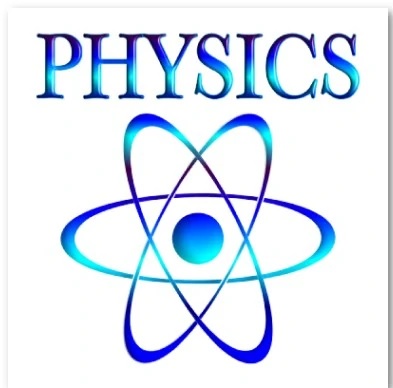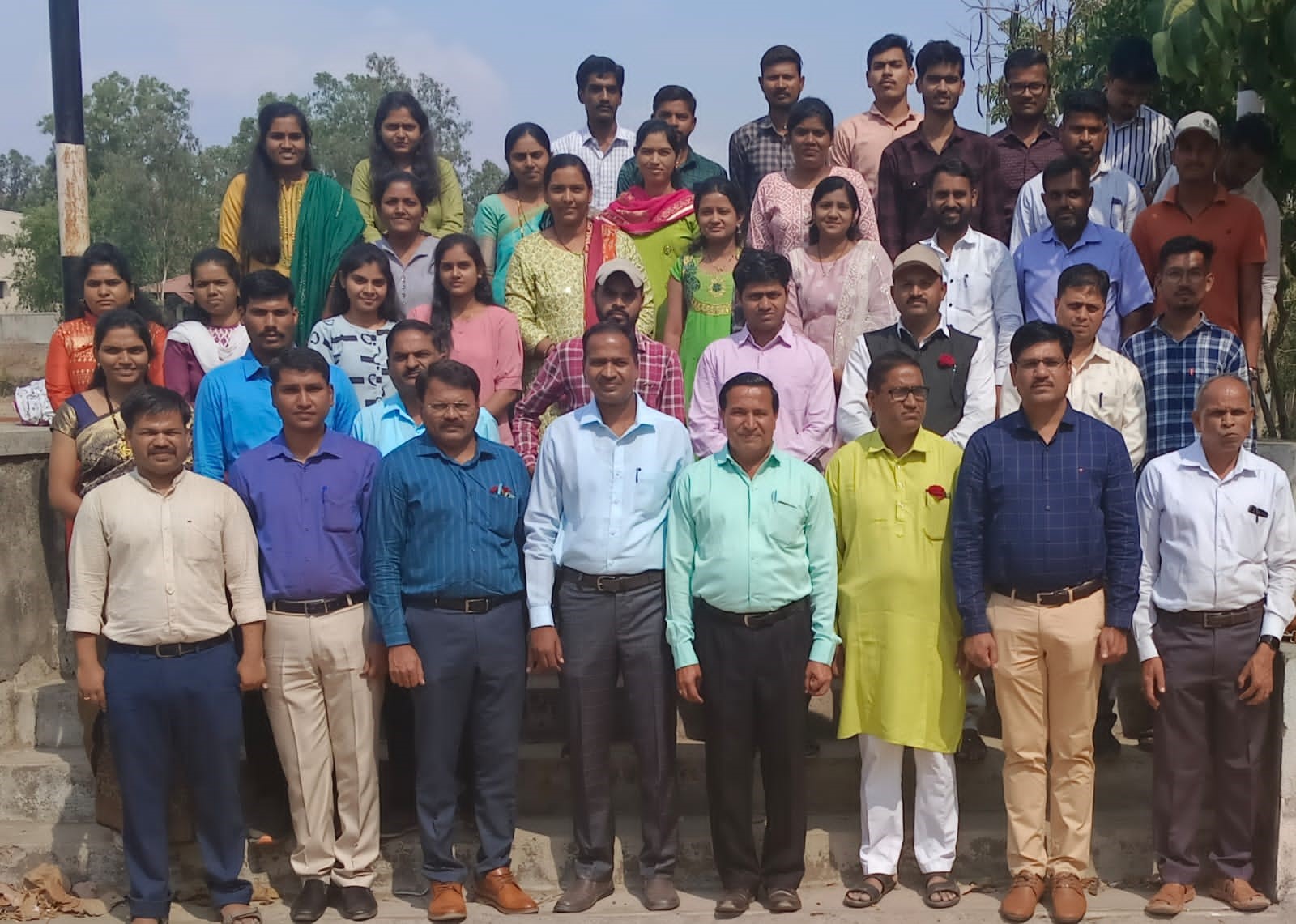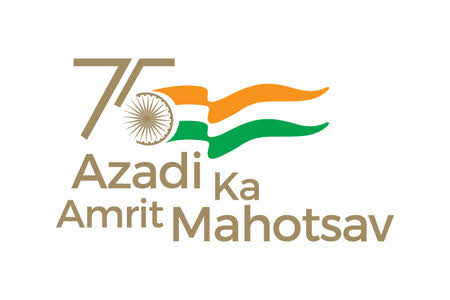Welcome To Physics Department

'Physics'

'Alumni Meet'
.JPG)
'Led Bulb Workshop'
About Department:
The physics department was established on 20th June 1990 with special subject B.Sc. Physics. Department runs the B.Sc. Physics (F.Y, S.Y, and T.Y) course with elective subjects Renewable energy sources and Medical electronics. Large numbers of students graduated from this department are at top positions in various government and non-government organization. The result of Physics department in every year is above 90 % and most of the candidates are passed out in first class with distinction. Department has organized number of university and college level seminars and workshops for students to encourage them in research activities. Department has collaboration with Giant Meterwave Radio Telescope (GMRT, Khodad), Department of Physics (SPPU), IUCAA (Pune), NCRA (Pune) and National Grape Research Center (Agar, Tal: Junnar). Department has well educated and experienced staff, which are actively engaged in research and academic activities. Dr. Dhakane S.F. has completed three minor research project funded by University Grant Commission and BCUD, SPPU. Our department also runs the Post Graduate (M.Sc Physics) Course with specialization of Energy Studies and Biomedical Instrumentations from the academic year 2013-2014.
Our department has organized various educational activities such as Science exhibition, Study tour, Scientific and industry visit. The student from our department has actively participated in AVISHKAR, ANVENSION, GMRT science exhibition, national and international conferences and got the prizes in zonal and university level. Moreover, every year department conducts various competitive exams, wherein, Indian association of Physics Teacher organizes the National Level IAPT Graduate Entrance exam for B.Sc. students and from last 12 years the department has organized this exam. The number of students from department at UG and PG- level got selected for ?Radiotherapy courses? at Tata Memorial Centre (TMC), Mumbai and Bhabha Atomic Research Centre (BARC), Mumbai.
Vision:
To provide practical and theoretical education in physics at UG/PG level students and inculcate them research and profession skills.
Mission:
- To provide students with capability to handle quality equipments in Physics to encourage their interest in emerging research areas.
- To provide high quality physics education through teaching and research to students and equipping them to master the concepts in physics and apply successfully to real world problems.
- To create quality infrastructure in the department for meeting the above mission.
Programs offered by the Department:
Name of the Program | B.Sc. (Physics) |
Duration | 3 Years (CBCS Pattern) |
Syllabus |
Name of the Program | M.Sc. Physics |
Duration | 2 Years (CBCS Pattern) |
Syllabus |
Add-on Course:
Along with B. Sc. Physics degree, a Certificate course is offered for science students.
Sr. No. | Name of the Certificate Course | No. of students | Year of introduction |
1 | Renewable Energy Studies | 50 | 2019-20 |
Facilities:
- High-temperature furnace with temperature controller
- Spin Coating unit
- Magnetic Susceptibility measurement unit
- Zeeman Effect complete set with computer interface
- Millikan Oil drop with computer interface
- Newton's ring apparatus
- BH curve apparatus with computer interface.
- Spectrometer with dual angle measurement.
- Digital Storage oscilloscopes.
- Electron Spin Resonance apparatus
- Frank Hertz Experiment
- G.M. Counter
- Hall effect measurement
- e/m by Thomson method
- Four probe method
- Michelson and Fabry- Parrot interferometer
- ECG machine
- Chemical Bath deposition method/Sol-Gel method/ SILAR method
- Magnetic stirrer with a hot plate
- UV-Vis Spectroscopy and Spectrophotometer
ICT facility available in the department:
- Virtual experiments on spring-mass system, pendulum, and optics developed by the faculty of the department
- LCD projector is installed in the laboratory for lectures on PowerPoint Presentations.
- Internet facility and programming languages were installed in the computers in the lab.
Equipments, synthesis methods and characterization techniques available for research:
- Furnace for annealing
- Double distilled water plant
- Magnetic stirrer with a hot plate
- Various chemicals and glassware
- The chemical bath deposition method
- Sol-gel method
- SILAR method
- Co-precipitation method
- Hall effect
- Four probe method
Simulations developed by Faculty
- Snake game by C programming
- Tajamahal by C programming
- Digital clock by C programming
- Lissajous figures
Video Lectures and PowerPoints developed by Faculty
- Courses after B.Sc./M.Sc https://www.slideshare.net/HaribhauBorate
- Scanning electron microscopy (You Tube)
- Basics of C programming (You tube)
Research Areas
- Bio-physics
- Energy studies
- Material Science
- Dye-Sensitized Solar Cells
- Electronics
- Nano-technology and thin films
Teaching Methods
Studying Physics at Department of Physics, Annasaheb Waghire College, Otur, you will learn from a wide variety of teaching methods:
Lecture Methods
Lectures last 50 minutes and there will be three lectures per week for each first, second and third year courses. Lectures take place in classrooms, with one teacher responsible for each course.
Laboratory Work
There are practical course assigned to each year of study. First-year and second year undergraduate will have one practical course. Third year undergraduate will have three practical courses including project work. During practical work student will have one practical session per week for each practical course. Project work assigned for third year undergraduate students which include latest topics from physics. Additional practical and demonstrations are arranged for students for better understanding of physics concepts.
Group problem solving
Since the primary goal in undergraduate physics course is to help students build functional understanding in physics, we focused on problem solving skills. For this purpose we pose problems in physics to students. Groups are formed among students and the groups apply strategy in solving problems both in classroom and laboratory. Teachers analyze problems solved by the groups.
Experiential Learning
Field trips/ visits are arranged for the students such as BARC, IISER, GMRT, IUCAA, NCL, Command hospital, etc. Science exhibitions are arranged for the students.
ICT in Physics Teaching-Learning
ICT resource
Physics Department have 01 LCD projector. PowerPoint presentations are used for teaching purposes. Video lectures by different eminent teachers are shown to the students during practical sessions. Videos of practical demonstrations are shown to the students. Computer interfaced experiments are used by the faculty and students.
Google Classroom
Google classroom facility is used by the faculty. Students are enrolled in google classroom. Teaching-learning material, PowerPoint presentations are shared through google classroom. Students also share their work through this classroom.
e-PG Pathshala & Amrita virtual lab
e-PG Pathshala is an initiative of the MHRD under its National Mission on Education through ICT (NME-ICT) being executed by the UGC. Following is the link for e-PG Pathshala
Link: https://epgp.inflibnet.ac.in/
Virtual Lab at Amrita uses state-of-the-art computer simulation technology to create real world environments and problem handling capabilities is required.
Link: https://vlab.amrita.edu/
Students can download notes from this
Faculty Achievement
- Dr. Dhakane S.F. has received Ph.D. Degree in physics from Savitribai Phule Pune University, Pune in 2017.
- Dr. Borate H.M. has received Ph.D. Degree in physics from Savitribai Phule Pune University, Pune in 2020.
- Dr. Kawade A.N. has received Ph.D. Degree in physics from Savitribai Phule Pune University, Pune in 2022.
Student Achievement
- More Aniket Tanhaji (B. Sc. Physics) received Savitribai Phule Pune University "Gold Medal" in the year 2013-14.
- Miss S. D. Sabale (B.Sc. Physics) qualified State Eligibility Test (SET) and GATE exam.
- P. G. Ghule (B.Sc. Physics) qualified State Eligibility Test (SET) and GATE exam.
- A. V. Kardile (B.Sc. Physics) qualified State Eligibility Test (SET) and GATE exam.
- Aniket More (B.Sc. Physics) qualified State Eligibility Test (SET).
- Prashant Kakade (B.Sc. Physics) qualified State Eligibility Test (SET).

